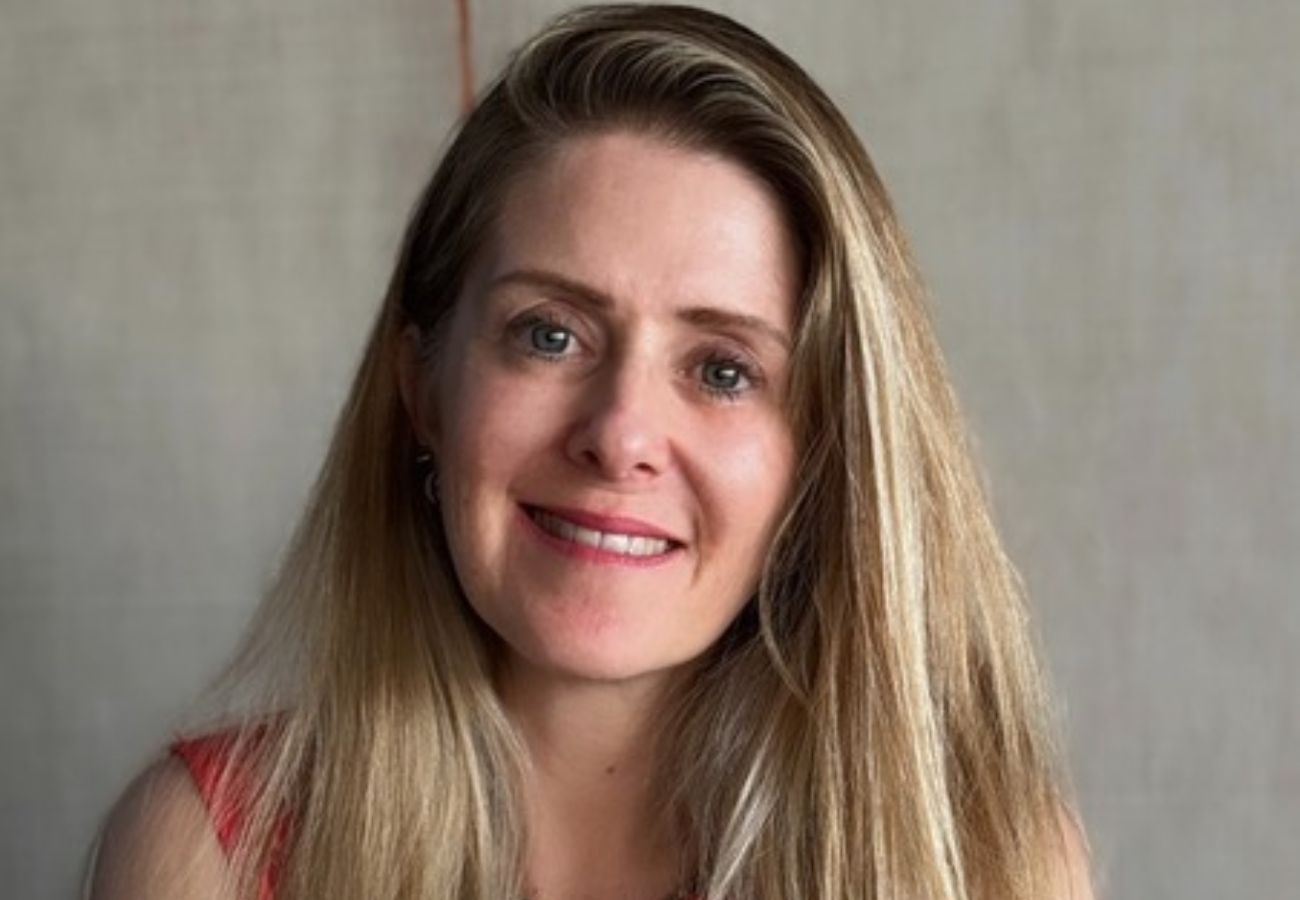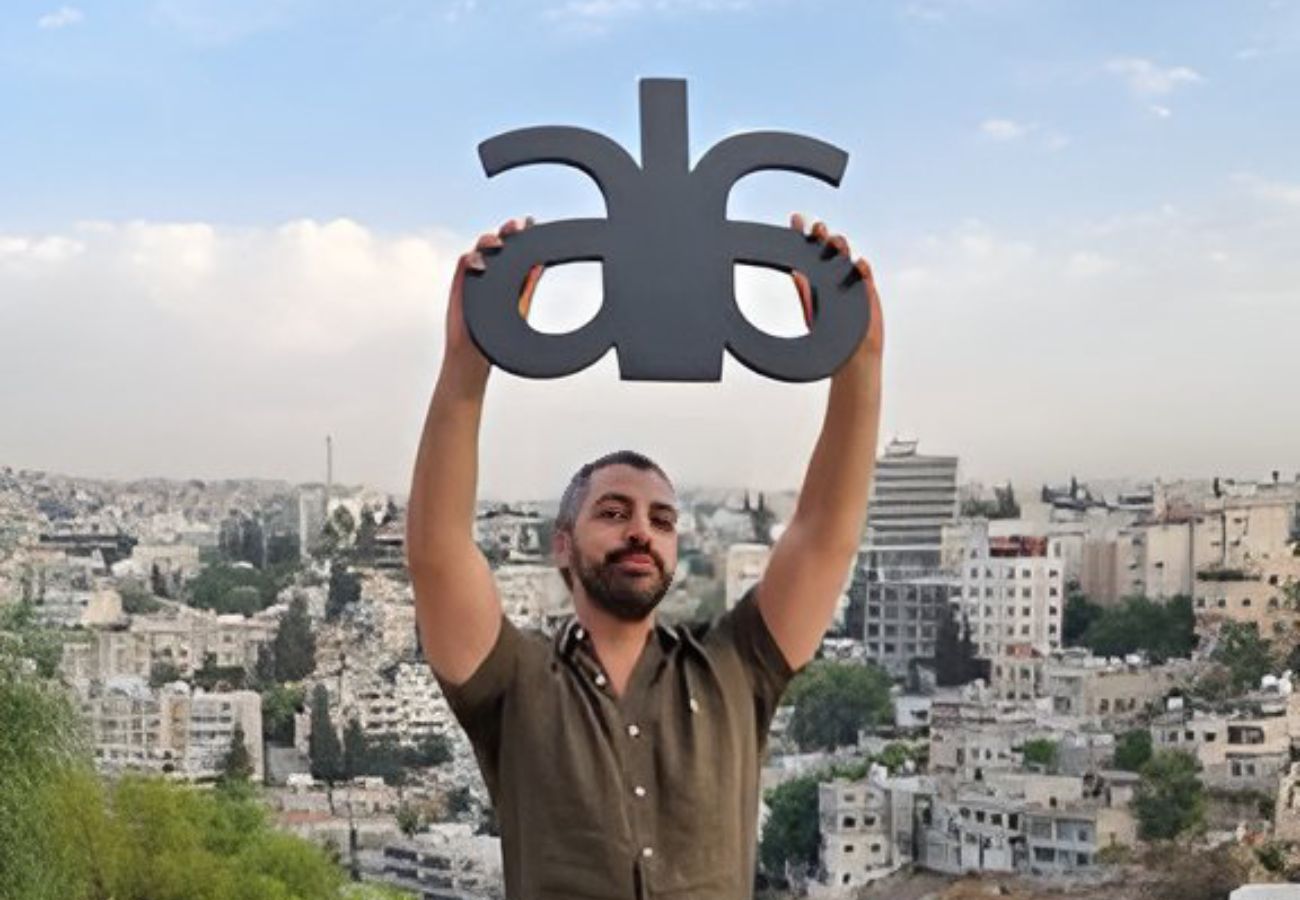
Our Exclusive Interview With Chef Sally Jane
In a captivating journey that transcends from the world of words to the land of flavors, Chef Sally Jane’s story unfolds as a testament to the diverse paths the culinary arts can take. With a background in creative non-fiction writing, she defied expectations and embraced her passion for cooking.
Having cultivated her skills at the renowned French Culinary Institute and graced kitchens in the US and Europe, Chef Sally Jane’s culinary prowess knows no bounds. Her culinary adventure took a pivotal turn during her time in Beirut, where she left an indelible mark with The Pantry Beirut, a creative haven for culinary exploration.
In this exclusive interview, we delve into the chapters of her unique journey, exploring the influences that shape her cuisine. Join us as we savor the narrative of Chef Sally Jane’s culinary evolution.
Could you share the story of how you made the transition from creative non-fiction writing to becoming a seasoned chef, and has this journey influenced your culinary creativity and approach?
For me, writing and cooking really work hand in hand! Food is all about the story behind it: where it comes from, who made it, and the provenance of the ingredients – so creating food is an extension of that story. The rich heritage and culture of food of the Levant is one of the reasons I love it so much. I am so fortunate to have work that allows me to do both things I enjoy the most!
Can you recall a specific dish or meal that inspired your decision to pursue a career in the culinary arts?

In hindsight, there were clues throughout my life that I should pursue a career in the food industry, but I was raised to work in a more traditional profession. However, there was the “fancy” dinner I prepared for my family when I was in the 4th grade (I sent invitations and carefully wrote up menus that my mother kept). Right after I finished graduate school for writing in New York City, I threw a big holiday party and worked on the menu for days, sourcing special ingredients, creating canapés, and making sure everything was just right. A guest at the party, a very cool Swedish club promoter, told me I should work with food for a living, and the seed was planted…. although it would be several more years before I decided to do it.
What was the most valuable lesson you took away from your time at The French Culinary Institute?
How very little I knew and how much practice I would need before I’d really be competent as a chef. Culinary school was just the start of my journey as a professional.
You’ve taught and worked as a private chef. Which role do you find more personally fulfilling, and why?
Teaching is so fulfilling because you often see students have that “lightbulb” moment. There’s an instant where something clicks in their heads, and they realize maybe a technique isn’t so difficult or an ingredient not so inaccessible and I often see it! Also, the group dynamic is a lot of fun (being a private chef is very solitary work) and I love sharing what I know with others.
You have a strong commitment to healthy, farm-to-table cooking. Is it challenging to create a balance between health and flavor in your dishes?
I don’t believe it is that challenging to do so. Farm-to-table cooking has been in fashion in the day-to-day cooking of the Middle East for centuries, as has a seasonal approach in local kitchens. My feeling is everything in moderation and a beautiful celebration of vegetables at every meal. This all lends itself to healthy, flavorsome eating!
Moving from America to London to Beirut has exposed you to diverse culinary landscapes. How have these transitions impacted your culinary philosophy and the flavors you incorporate into your dishes?

Transitions have been part of my life since my family first moved abroad, to the Soviet Union, back when I was 6. I thrive on transitions and have always seen change as an opportunity to learn about a new place and culture and myself. I suppose I’m like a little greedy magpie gobbling up experiences as much as I can! I feel like each place I’ve lived has prepared me for the next and the work I’ve done in each was a building block, something I needed before I could move on to the next stop. For instance, my time in Beirut prepared me to work as a chef in Amman, exposing me to their rich culinary traditions and gorgeous ingredients and learning how people entertain. Now, with almost 20 years of experience under my belt, I finally feel ready to show off my culinary philosophy and share it with everyone.
Your time in Beirut seemed to have been a culinary adventure and a great influence in shaping your culinary identity. Can you walk us through how The Pantry Beirut came to be and how it evolved into a dynamic culinary atelier?
As my business in Beirut grew it became clear that I needed a bigger space in which to work on my catering, however, my beautiful little atelier was so much more than that. I hoped that it would be a space where chefs, in particular, female chefs who are still so underrepresented, would have room for their events, share ideas with each other, and support one another. Very quickly, aside from just the catering, I hosted photoshoots for cookbooks, shot culinary videos for brands, had various chef events in the space, tastings for restaurants I consulted for, I threw parties in the space, and taught lots and lots of classes. All worked to shape my culinary identity and make me grow as a chef. Sadly, with the crisis in Lebanon in 2019, I closed the atelier, but I like to think I achieved a small part of what I set out to do.
Can you describe a particularly memorable event or dish from The Pantry Beirut?
One lunchtime cooking class I hosted for a group of Lebanese women who were all good friends was particularly fun. I taught them a bunch of hearty summery salads along with a technique for smoking salmon on the stovetop, and some cookies. Simple! But it was through that class that I got my job consulting for Super Vega Beirut, which is probably the restaurant project closest to my heart, and met some fantastic people. For weeks I got messages from ladies smoking salmon on their stovetops at home, asking for advice, and sharing photos of their results. Just shows that you never know how one small moment can lead to the bigger moments in your life, and to be open and ready for all possibilities always!
Your involvement in projects like “Empowering Women through Cooking Lebanon” is a project that beautifully marries culinary skills with storytelling. Could you share a particularly touching story from your experience working on this project?
This was a dream project for me because it combines everything I love about food and culture and women and traditions! The World Food Program in Lebanon is the beneficiary of the proceeds of the book, and we featured a few women who were part of their culinary training programs. To get their stories and recipes, I traveled to the North of the country where I met with each woman in her home, watched her prepare the dish she was going to share with us, and heard her story and how cooking was helping her make a living for herself and her family. The generosity with which each woman greeted me, proudly showing me her skills and food, was humbling.
Your journey has spanned different cultures and cuisines. How do you approach merging diverse flavors and cooking techniques to create a harmonious and unique culinary fusion in your dishes?

When I look at food these days, I’m trying to create a story on the plate that starts with the land, moves on to the farmers/producers, is then handed to me as the chef, and finally is presented to my diners. Rather than fusion, I like to think of it as a natural progression of recipe development. By taking flavors and ingredients that have been used the same way for centuries and trying new techniques and flavor profiles together, you’re celebrating what the land offers us, expanding the repertoire. The result, I like to think is familiar, comforting, but surprising all at the same time.
With the culinary landscape constantly evolving, new ingredients and food trends emerge. How do you navigate incorporating innovative ingredients while staying true to your culinary roots and delivering a memorable dining experience?
I read somewhere that at some point all traditions were innovative. I love that idea and believe that food, much like language, fashion, or art is a constantly changing entity that has room for all sorts of playfulness and experimentation. As an American from the Midwest, I don’t feel like I have strong culinary roots of my own, but I’ve been lucky enough to eat and cook and live in many places around the globe from the time I was a small child. This exposure has given me the gift of knowing how food from different places tastes, what makes food good regardless of how fancy it is (or not), and what a beautiful dining experience looks and feels like. I try to bring this ethos to all my events and dishes.
You are back in Jordan, and we are excited! Could you share your vision for your culinary plans or projects you have in mind to contribute to the local culinary scene?
I’m so happy to be back! I’m kicking things off with the first in a series of seasonal pop-up dinners that celebrate the best of Jordanian produce in early September at Dar Darwazeh. Also, this Autumn I’ll be launching my catering menu, which will be similarly seasonally inspired, and which you’ll be able to order for your events at home. Fingers crossed I’ll soon be offering a variety of pantry products, money, and ingredients I can’t live without in my kitchen that I’m betting you’ll be addicted to soon too. Maybe a collaboration here and there? The sky’s the limit. I hope you’ll stay tuned!






